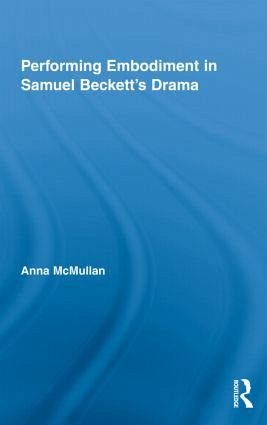
Performing Embodiment in Samuel Beckett's Drama
Versandkostenfrei!
Versandfertig in 1-2 Wochen
185,99 €
inkl. MwSt.
Weitere Ausgaben:

PAYBACK Punkte
93 °P sammeln!
Fifty years after the premiere of Waiting for Godot (1953), Samuel Beckett has become a global cultural icon. This book will be the first detailed study of Beckett's staging of the body in his drama for theatre, film, television and radio. Providing an overview of existing scholarship on Beckett and performance, this book will place Beckett's drama for theatre, film, television and radio in the context of highly contemporary discourses of subjectivity, embodiment, performance and technology.
The representation and experience of embodiment is a central preoccupation of Samuel Beckett's drama, one that he explored through diverse media. McMullan investigates the full range of Beckett's dramatic canon for stage, radio, television and film, including early drama, mimes and unpublished fragments. She examines how Beckett's drama composes and recomposes the body in each medium, and provokes ways of perceiving, conceiving and experiencing embodiment that address wider preoccupations with corporeality, technology and systems of power. McMullan argues that the body in Beckett's drama reveals a radical vulnerability of the flesh, questioning corporeal norms based on perfectible, autonomous or invulnerable bodies, but is also the site of a continual reworking of the self, and of the boundaries between self and other. Beckett's re-imagining of the body presents embodiment as a collaborative performance between past and present, flesh and imagination, self and other, including the spectator / listener.













